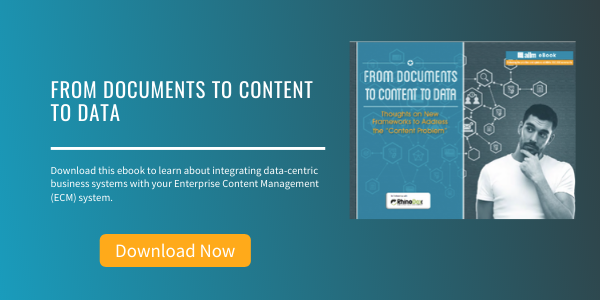
Growing Importance of Document Technologies in HR Community
Document Management | Human Resources
For those interested in the HR Community, SHRM (Society of Human Resource Management) has pulled together a great report on future trends within the HR community.
The Technology section of the report reflects the growing importance of document technologies within the HR community.
- Information and actions are increasingly portable via mobile applications.
- The availability of various social media and the increasing complexity of intellectual property are increasing the need to establish and improve technology governance and policies.
- The use of cloud computing (reliance on online applications for various technology needs) is increasing.
- Organizations increasingly are adopting viral recruiting and social media for employer brand messaging (e.g., Facebook, Twitter).
- The economy is having a slowing effect on enterprise projects, which, in turn, affects technology—both now and when things shift back in recovery: transformation projects are decreasing, new projects require longer decision times, cost-cutting initiatives are increasing, organizations are breaking larger projects into a series of smaller ones, globalization efforts are on hold, software and implementation prices are lower.
- Talent management platforms are undergoing product consolidation, shifting away from siloed applications toward total solution suites that support a holistic view of talent management.
- There is growth in the area of both candidate management and employer management tools.
- The availability of dynamic collaboration tools is altering the importance of organizational knowledge versus social hierarchy.
- As more companies produce various kinds of sustainability reports, e.g., carbon disclosure (CDP) reports, employees will require training in the use of sustainability software, carbon impact database development, calculations of waste resource use into carbon impact statements, as well as overall employee training in process changes, governance, risk, and compliance.
- Organizational and individual information is increasingly transparent (e.g., profiling of hiring managers, Japan’s mega-database of all potential employees).
About John Mancini
John Mancini is the President of Content Results, LLC and the Past President of AIIM. He is a well-known author, speaker, and advisor on information management, digital transformation and intelligent automation. John is a frequent keynote speaker and author of more than 30 eBooks on a variety of topics. He can be found on Twitter, LinkedIn and Facebook as jmancini77. Recent keynote topics include: The Stairway to Digital Transformation Navigating Disruptive Waters — 4 Things You Need to Know to Build Your Digital Transformation Strategy Getting Ahead of the Digital Transformation Curve Viewing Information Management Through a New Lens Digital Disruption: 6 Strategies to Avoid Being “Blockbustered” Specialties: Keynote speaker and writer on AI, RPA, intelligent Information Management, Intelligent Automation and Digital Transformation. Consensus-building with Boards to create strategic focus, action, and accountability. Extensive public speaking and public relations work Conversant and experienced in major technology issues and trends. Expert on inbound and content marketing, particularly in an association environment and on the Hubspot platform. John is a Phi Beta Kappa graduate of the College of William and Mary, and holds an M.A. in Public Policy from the Woodrow Wilson School at Princeton University.



